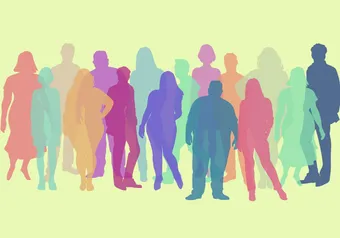It’s okay, you can put studying off a little longer to read this. According to cognitive scientists, texting your friends to meet you at Irving might not be the best plan.
While it might make you feel better to have a support group to study with, it can actually hurt your studying. See, over time, each of us has developed a unique way of storing new information and as a result, we come into a group study with our own way of retrieving the information. Simply listening to your friends think out loud can interfere with this individual retrieval strategy.
According to a study done by memory expert and Stony Brook University professor Dr. Suparna Rajaram, there is growing evidence that if the way you recall information is disrupted during group collaboration, it may get disorganized or stored somewhere inaccessible. In effect, it’s forgotten for good. It’s also possible that individuals can incorporate others’ mistakes into their own memories. A study conducted by Dr. Stephen Rybczynski found that even though students believed them to be beneficial, there was no relationship found between study groups and gained knowledge.
On the other hand, working in groups appears to offer some long-term benefit by re-exposing you to material you may have forgotten or correcting individual errors of recall. According to research done by Dr. Keith Sawyer, a professor at Washington University, study groups can be effective since they provide a way for students to make lecture notes. Sometimes it can be hard to listen to your professor when you’re busy taking down notes, making it hard for you to absorb the material. However, when you’re in a study group setting, you can absorb the lecture material through your interactions and make them your own.
So is meeting up with your friends at Starbucks really that bad? Well, a better way to prepare for an exam may be to study alone, with group discussions in between those solo sessions (perhaps once a week). These group discussions are different from group studies because they are an additional tool to let you know what you missed in your own time.
First online
Share this article








